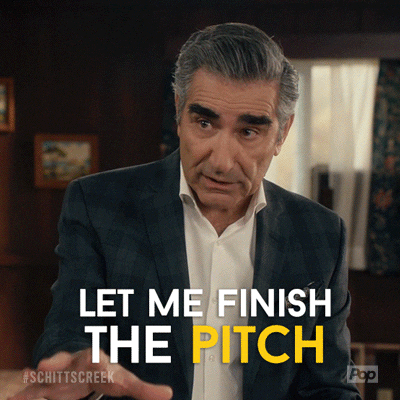Networking Pro-Tip: Hit Pause On The Damn Elevator Pitch!
Time to stop tossing out words, and inviting conversation, instead.

I loathe elevator pitches.
Why? As somewhere in the seeking-an-investor-for-my-startup and business development frenzy of the last 15 years, the necessity of a carefully crafted, memorized, 90+ second elevator pitch became gospel, to the point that whenever you ask pretty much anyone "what do you do?" or "tell me about yourself?" the reply is a flurry of prepared words tossed out indiscriminately, like paint tossed on a canvas by a splatter artist (and not an accomplished one).
A carefully prepared elevator pitch is a barrier to listening.
Elevator pitches in social situations, be it a meetup or social gathering or work setting, rarely invite conversation. And isn't that what we are all really trying to do? Spark engagement? Ignite interest? Make a connection???
When you're tossing out prepared words at someone you're singularly focused on yourself - on remembering those 90 seconds of carefully rehearsed text. Your attention is singularly sucked inward - and what you're incapable of is considering the other person, and taking in all the social cues they are giving off.
So how do you switch from elevator pitch performance to engaged conversationalist?
By inserting a pause.
Yup. A big deep breath after the delivery of a brief answer to a question, such as "tell me about yourself?".
Insert a pause to let the other person join in and ask for more, or for you to continue with "shall I tell you more?" or "would you like to know more?" or "what about you, tell me about your [job/startup/experience/whatever]". Pause to invite interest. Pause to gage interest. Pause to show you're as interested in learning about them as you would like them to be about you.
Let's pause so I can provide an example.
An IP attorney I coached used to introduce herself as "I'm a partner at XYZ firm in the Intellectual Property Group and I handle complex commercial litigation matters..."
Thrilling, huh?
My question to her - when I interrupted the carefully crafted 60-second business development pitch - was: "I don't know what you do, I only know how you do it (litigation). So tell me, what do you do? What's the outcome for your clients? What do you achieve by what you do".
Her response?
"I open new markets in the pharmaceutical industry".
Boom!
Brilliant. Perfection. A concise statement to start a conversation. The how (I'm a partner at....) title and zip code BS can now follow - after a pause (of course!) to let the other person dive in with an obvious "how the heck do you do that???" (which is precisely what I did!).
Make sense? If not, let me spell it out:
- Think about what you really do versus the mechanism of how you deliver what you do (i.e. open new markets vs litigate).
- Describe your "what" in a brief sentence (i.e. "I open new markets in the pharmaceutical industry").
- Insert a pause after stating your "what" as it offers the other person an opportunity to leap in with "how do you do that?" (my IP client's answer: attacking weak patents held by big pharma so cheaper generic drugs can get on the market faster).
A well placed pause invites the other person in (which, when you're in 1:1 or smaller social situations where conversation and connections are the desired outcome). By becoming part of the conversation vs being trapped in one, increases the likelihood that you'll make the connections you're seeking.
Need more?
💡 Launch a meaningful conversation with three simple questions. Read: Networking Pro-Tip: So What? Tips for Small Talk Mastery
💡 Fretting over crafting the perfect icebreaker question? Think of it as a process, not a one question for every occasion way to start a conversation. Check out: Networking Pro-Tip: A Process For Breaking The Ice
"Many people are reluctant to speak to a stranger because they worry that it might feel awkward for them and the other person. However, research studies have found that we worry far too much, and instead, people consider a compliment or a friendly chat to be a noteworthy act of kindness that makes them feel happy, connected, and seen."
💡 Read: A little connection can go a long way - UK’s largest train operator sparks commuter conversations
